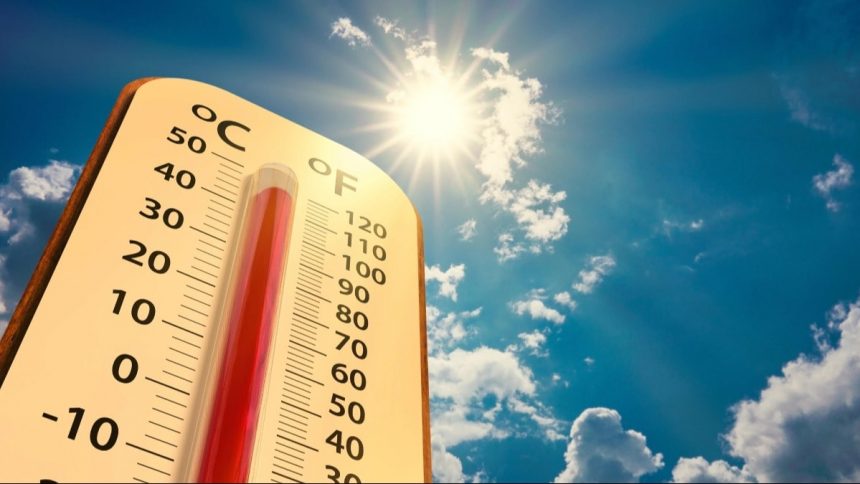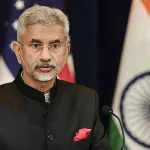Srinagar, June 16: Kashmir’s environmental experts have raised serious concerns over the region’s rising temperatures, warning of severe consequences from climate change, including water scarcity, erratic weather patterns, and ecological imbalance that could threaten agriculture, biodiversity, and the overall health of the fragile Himalayan ecosystem.
Ajaz Rasool, a noted hydraulic engineering expert and environmentalist, said the heat wave in the country has started affecting Jammu and Kashmir, especially Kashmir valley, as both day and night temperatures are rising.
Over the years, the valley has been witnessing extremes of hot and extremes of cold temperatures. The cold temperature in summer was a reason for crop reduction in the previous year.
“The effect of temperatures is taking place in Kashmir. It is global warming and climate change affecting weather patterns. We have seen fluctuating temperatures. These peaks are going to come whether in cold or hot climates,” Ajaz said.
He said in the previous years it was getting warmer and all of a sudden the temperature decreased and people had to wear woollen clothes. “The global climate change and global warming have thrown things out of pattern and order.”
Notably, in March last year, temperatures in some parts of the country touched 40 degrees Celsius. There are already concerns over the possibility of an intensely hot summer and extended heat waves this year.
The environmentalist expected that in the coming days the valley will witness a temperature rise which may reach 34° Celsius or more.
“The hot temperature in Rajasthan and Delhi will have an impact in Kashmir. As of now, there is no worry for farmers but let’s see the weather patterns. We have been having intermittent rains and there is no effect on water bodies as of now,” he said.
Observers said one of the major factors for the climate change is pollution and emission of carbon adding that it was also a reason why earth is witnessing extreme hot temperatures.
“This will happen. Till now we haven’t seen world leaders doing anything to limit the pollution and other activities that have affected the environment,” they said.
The experts said glaciers are receding and naturally when there is no sustained winter, obliviously things will change. They say that the reformation of glaciers is not happening and the problem is getting aggravated and it will have an impact.
Prof. Manoj Kumar, from University of Jammu, said climate change is affecting natural resources that are the backbone of the economy for thousands of people.
As per them many glaciers, including Kolahoi Glacier, is the fastest-depleting glacier of the Himalayas. There is another glacier, Machoi glacier in Drass, its area has been lost by 29 percent from 1972 to 2019.
Similarly, Thajiwas a group of four glaciers in Sonamarg are also melting. “There is a place called Panchtarn near Amarnath base camp and there are five glaciers showing signs of retreat. Sheshnag glacier is also showing signs of retreat.”
They said all the glaciers in Kashmir are showing a sign of retreat due to rise in temperature triggered by global warming and extreme pollution.
“Efficient public transport is one of such measures that can save the environment and glaciers. Government efforts are also important in this regard,” the experts said.
In 2016, severe heat wave conditions affected Bihar, Jharkhand, Gangetic West Bengal, Odisha, Punjab, Haryana, Chandigarh, Delhi, Rajasthan, Maharashtra, West Madhya Pradesh and Gujarat.
This year, for the first time in 56 years, Srinagar witnessed its hottest day in May, with temperatures soaring to a scorching 34.4°C. It was highest temperature recorded in the city during the month of May since May 24, 1968, when the mercury had touched an all-time high of 36.4°C.
Director MeT Srinagar, Dr. Mukhtar Ahmad, told Rising Kashmir that Srinagar recorded its third highest maximum temperature of 34.4°C on May 22, 2025. The second highest was 35°C, recorded on May 31, 1956, while the all-time highest maximum temperature of 36.4°C was observed on May 24, 1968.
He also noted that Kukernag station recorded its highest ever maximum temperature for the month of May—33.3°C—on May 22, 2025. The previous second highest temperature at Kukernag was 32.6°C, recorded on May 15, 2001.
Experts concerned over rising temperatures in Kashmir
‘Climate change affecting weather patterns’

Leave a Comment Leave a Comment







